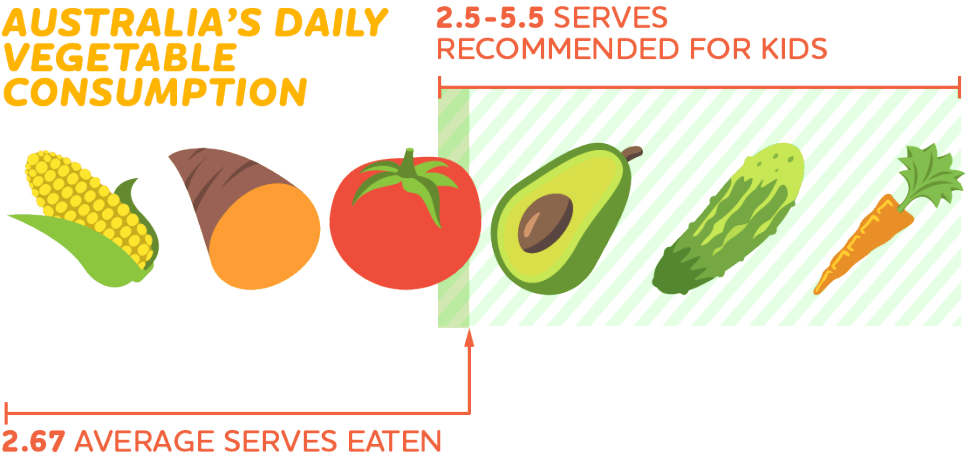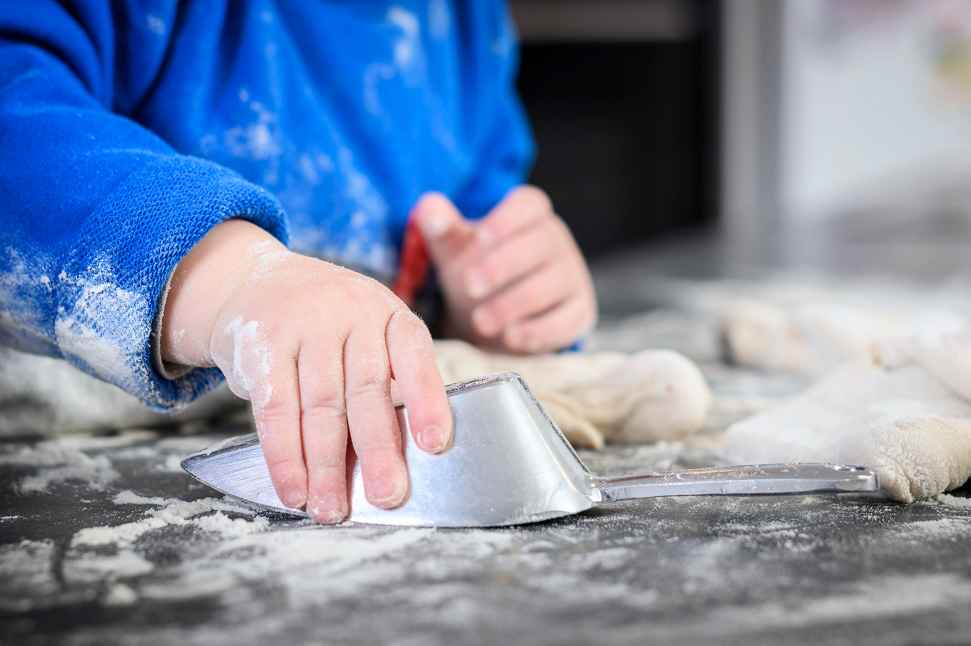
The dinner dilemma
Is there an easier way to help working parents put healthy dinners on the table? Caring Futures Institute researchers are developing an app with nutrition expertise baked into recipes that are also kid-friendly and considerate of budget, time and diet preferences.
"Where are we going to put the table?” Even before kids were in the picture Jonathan and Mel knew their new home needed a room big enough for a big table. Back then, it was just the two of them but they could already see the most important details – kids eating and laughing in that big room with the big table.
Five years on and most days that’s where Jonathan, Mel and their kids Laila, four-years-old, and Isaac, 15 months-old, sit at the end of the day. Dinner preparation happens at double-speed; they have 30 minutes, maybe 45, after arriving home from work to cook, plate and feed the family. But they admit, there are also the takeaway nights, the leftovers again nights and grandma’s frozen casserole nights.
The number of working parents in Australia continues to increase. Sixty four per cent of Australian families have two working parents and US data shows working parents have much less time to dedicate to food preparation and food shopping than their non-working counterparts. As a dietitian and nutrition researcher at the Caring Futures Institute Chelsea Mauch sees this in the families she works with and she plans to help. Under the supervision of Associate Professor Rebecca Golley, they are working together on a new tool to support Australian families.
Image above: Jonathan and Mel with children Laila and Isaac at home in Adelaide.

Better options
Jonathan returned to work 10 days after Laila was born – a necessity for their budget. Mel returned to work nine months later and they’ve been working and raising their family in unison since. Which was why, when Jonathan saw the call out for participants for Chelsea’s study he thought, “that sounds just like us.”
Chelsea worked with parents to trial apps for recipes and meal planning and gather their feedback. Parents want to provide healthier dinner options but there are other things they need to consider – limited time, different cooking abilities and the preferences they have for shopping and cooking in their own homes.
Chelsea and Rebecca are taking this information and hoping to build a new research-backed app for families. They want flexibility to be a key part of the new app – something that is lacking in options already on the market. “Meal planning is an effective nutrition education strategy and a predictor of a healthy diet. But we also know that planning is not everyone’s cup of tea,” Rebecca shared, “People are doing smaller, more frequent shops and only planning meals a day or two ahead. Our app is focused on nutrition education strategies that are flexible for how people shop and prepare meals.”
“I don’t like planning meals so far in advance,” Jonathan said, “I often work out what I’m cooking once I’m at the supermarket.” A good meal, to Jonathan, is packed with seasonal vegetables (often shredded down into forms Laila can’t discover). “We’ll walk around the supermarket and see what’s cheap. Budget is tight for us – it’s not something we can play around with – if capsicums are on sale I want to find a recipe that uses them.”
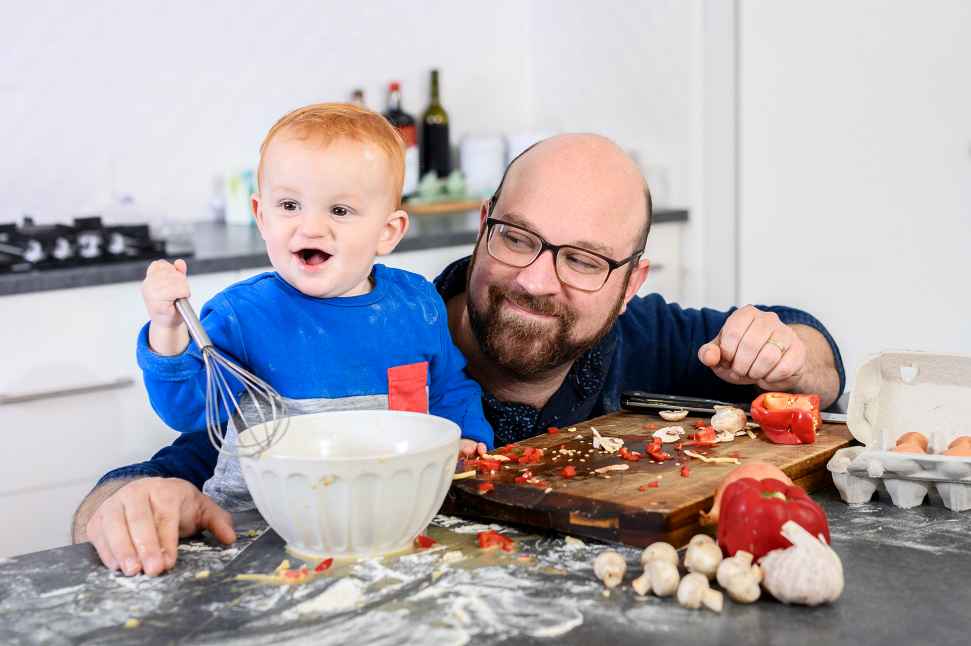
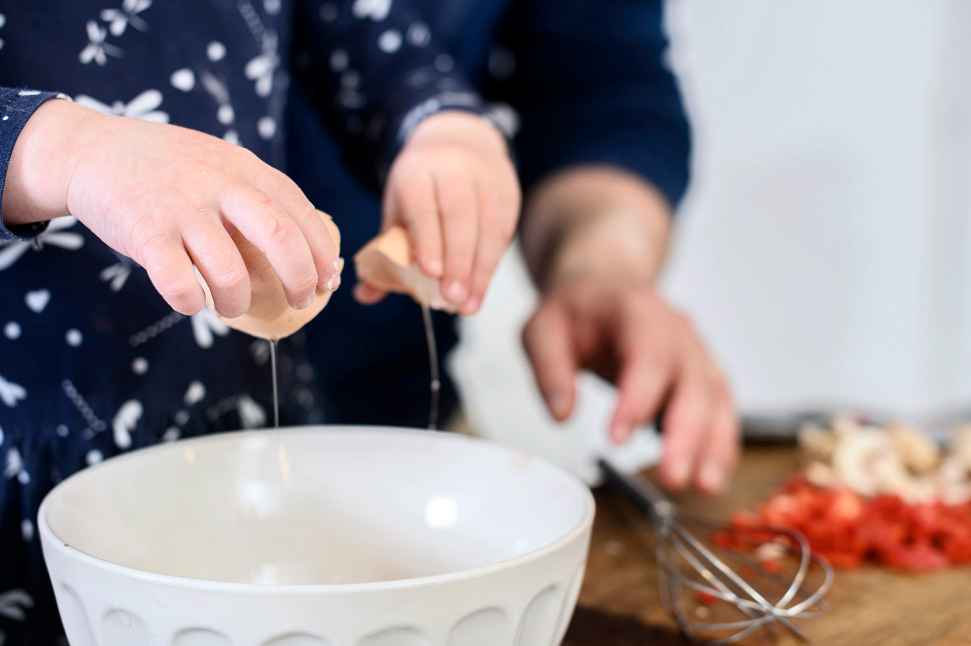
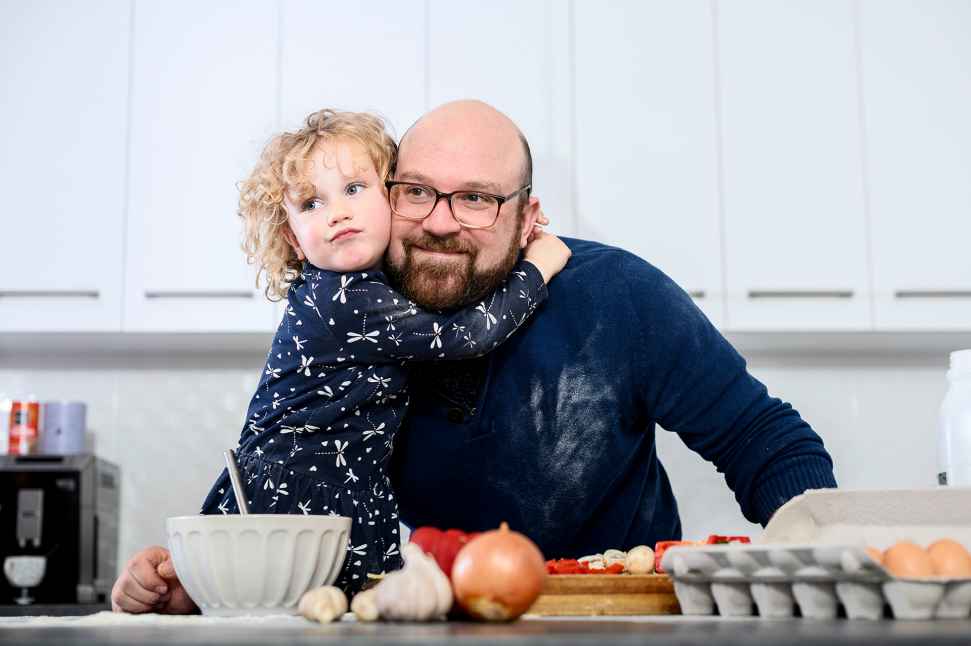
Better information
Jonathan loves cooking. Mel loves cooking quickly. Both grew up seeing how food can bring people together. In Jonathan’s childhood home meals were big; falafels, a spread of salads, hummus and pita pockets to put it all in. Food was the centrepiece which family and friends could gather around. Growing up for Mel’s family it was all about the Sunday roast.
Jonathan learnt a lot of what he knows about cooking from his mum. He would watch as she made baba ganoush from scratch and she also taught him how to make a similarly delicious dish by skipping the lengthy smoking process and cooking it quickly on the stove top. Jonathan takes these lessons with him into his family’s kitchen.
Chelsea believes parents need to give themselves a break – they’ve earnt it. “At the end of the day, it's accepting there are healthy ways we can cut corners. It doesn’t have to be a fancy creation to be a good meal —which is often the pressure parents put on themselves,” she shared.
🌽
Chelsea audited apps that were already available and their potential to support families get healthy meals on the table. She audited 51 apps and found recipe banks, meal planners and shopping list features were common. She selected five apps with the most potential to test with families – to see what features helped, and which didn’t, in real life.
🥦
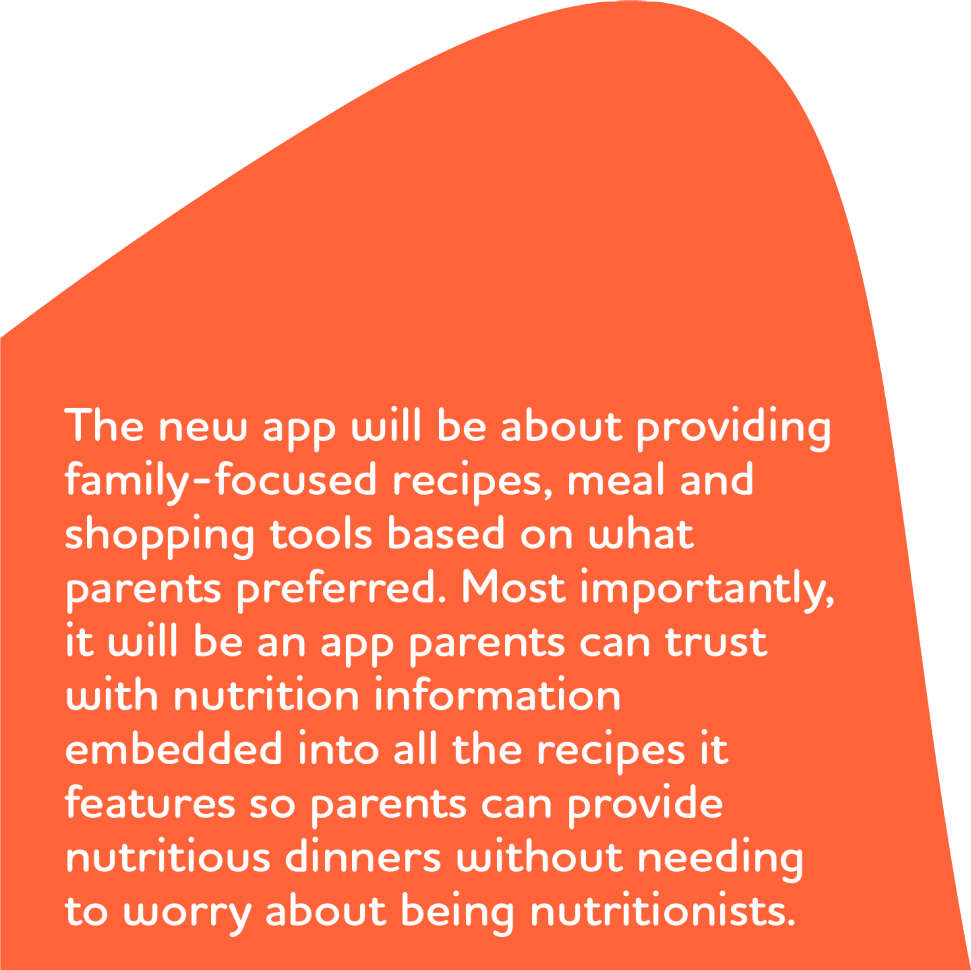
Better ideas
“Laila loves meatballs, anything Italian. We don’t know where she got that from but it works for us,” Jonathan laughed. Meatballs are great, Jonathan shared, because you can hide veggies in them. The apps Jonathan liked had recipes that looked like something that would sit on a family table.
“Parents told me they feel like they are always looking for new dinner ideas and inspiration,” said Chelsea, “we want an app that gives them this, while also reminding us all that new and healthy doesn’t need to be complex.”
Jonathan can’t make small meals – another influence from his mum, he says – so he embraces big pots and loves using sauce from pasta one night and then adding new ingredients for chilli con carne a couple of nights later. Adaptable cooking preferences are an important component of the app’s flexibility.
Better lives
Chelsea and Rebecca’s research is still underway. They want to take their research about parents’ needs for the apps, embed it with their expertise in nutrition and then take it to designers who are experts in creating functionality through good design. They want it to be an app parents enjoy using.
Enjoying food is something that is important to Jonathan. Laila is already showing signs as a budding foodie in her own right, “There are not many times when we’re in the kitchen cooking when Laila won’t be up on a stepping stool, watching what we are doing, talking to us or helping out,” Jonathan shared. He hopes Laila and Isaac learn about making food from scratch, that they have fond memories of their family dinners and good ideas about food and nutrition they can take with them into their lives.
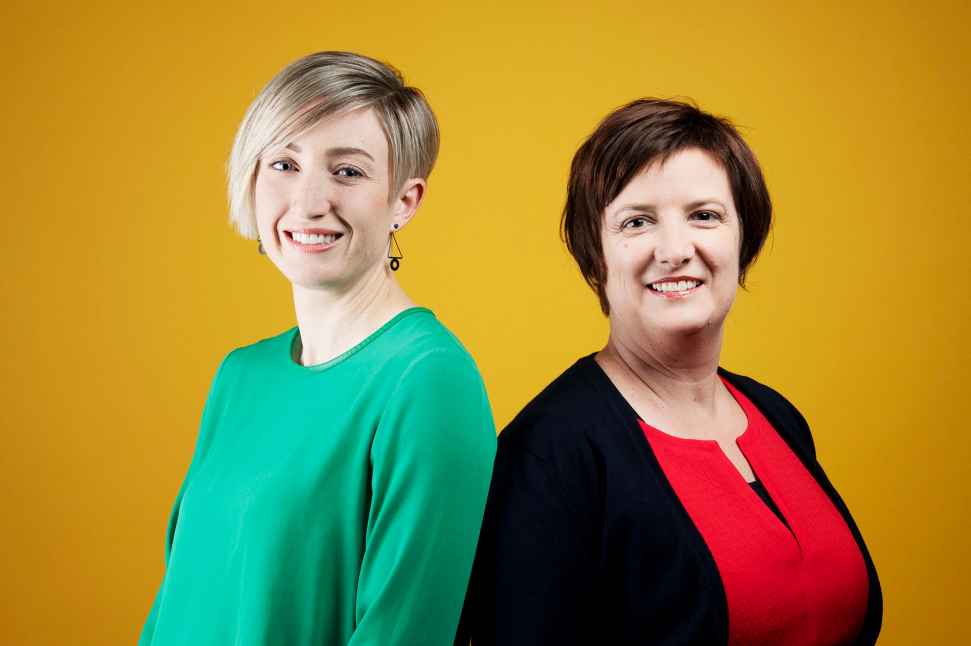
Chelsea is a current PhD candidate at Flinders University. She is an Accredited Practising Dietitian specialising in infants, children, family and maternal nutrition. Her work includes establishing and running information sessions about nutrition and introducing solid foods to babies in their first year. Her research interests are childhood obesity and using technology to promote and support healthy practices for modern day families. She is currently researching and looking to develop a new recipe and nutrition app for working families.
Associate Professor Rebecca Golley (R)
Rebecca is an internationally recognised expert in child obesity and nutrition promotion. She leads a program of public health nutrition research at Flinders University and is the interim lead for the Caring Futures Institute’s Better Lives theme. Rebecca has undertaken postdoctoral research in the UK and Australia and with agencies such as the CSIRO and the School Food Trust. Rebecca is currently the Flinders lead on a national consortia 'VegKit' with the CSIRO and Nutrition Australia working to find ways to increase children's vegetable intake. She is also applying her expertise in dietary assessment methodology to develop a new tool to measure obesity-related behaviours in young children as part of the NHMRC Centre for Research Excellence in Early Prevention of Obesity in Childhood.

![]()
Sturt Rd, Bedford Park
South Australia 5042
South Australia | Northern Territory
Global | Online
